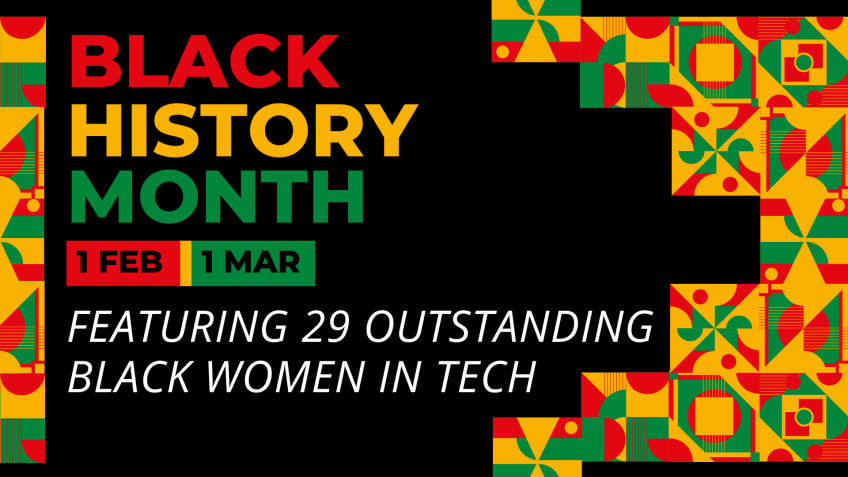
How to Become An Ally to Black Women at Work?
People aspire towards producing a more equitable workplace, yet many don't have the grit to put in the necessary effort. One crucial part comes down to appreciating that all minority groups do not experience similar treatment - thus you cannot approach being an ally with a generic outlook. To illustrate, someone who identifies as transgender will have different work-related challenges from somebody living with a disability; hence your obligation to be their supporter needs to differ accordingly.
In the words of Malcolm X, "The African American women are amongst the most disregarded and unprotected people in America, having been neglected time after time."
This statement rings true today as many Black women remain subjected to injustice and inequality.
Below are five practical tips to become an ally for Black women at work (particularly needed in STEM fields):
1. Educate yourself 🖤
Becoming an ally starts with a commitment to educating yourself about the topics that you need to learn (and unlearn) in order to ensure that everyone is heard, respected, and supported.
Despite the long-term difficulties that Black people face in the workplace, many allies have failed to take advantage of a great deal of information and resources at their disposal. This includes countless research reports and academic studies over recent years highlighting experiences specific to black employees and more specifically, Black women. As new evidence continues to be released regularly, now, during Black History Month, is an ideal time for everyone who wants to help make positive changes in this area to familiarize themselves with what's out there.
As outlined in McKinsey & Company's report, the private sector typically presents five significant issues for black employees: high attrition rates, a disruption between entry-level and managerial positions, as well as absence of sponsorship or allyship. Lean In's research revealed that even when successful, Black women are often discredited due to affirmative action or luck rather than their own capabilities and hard work.
To become a reliable ally to Black women, it's essential that you first acknowledge the data and use this knowledge as your starting point. It’s admirable to expand your intellectual comprehension on such matters; however, true allyship is about taking action rather than simply absorbing information. Don't wait for prejudice or bias to appear before you: be proactive in finding ways of assisting Black women, and demonstrate awareness of any inequities present in both formal & informal procedures, rules, and organizational culture.
2. Get More & Better Exposure 🖤
To gain a well-rounded understanding of the experiences of Black women, listen directly to as many as possible. Never expect one individual to act as an absolute representative for all Black women and give each Black woman the space to speak their own truth without confining them by grouping them together under generalized assumptions.
Reflect upon your own connections with Black women, and ask yourself challenging questions to understand how these relationships have impacted you. Maybe even ask yourself these tough questions:
-
Have you ever formed any friendships with Black women? If no, what has been preventing that connection from happening?
-
Are there any Black female colleagues who you trust and can be open with?
-
Are you taking the time to comprehend the outlook and journey of Black women in your workplace? If not, why not start now?
Affirmative answers to these questions are not the end, but rather form a strong foundation upon which you can continue building.
3. Develop Authentic Relationships 🖤
If you are a leader of an organization that is not prioritizing the recruitment, promotion and advocacy of black employees, then your voice against racism and social injustice will be in vain.
If you’re trying to become a genuine ally, strive to foster meaningful relationships with the Black women in your organization. It's imperative that you have some patience and don't expect instantaneous results if you haven't put forth any effort before now. A solid basis of trust takes time; however, it can be very worthwhile in the end!
-
Take advantage of the fantastic opportunities offered by employee resource groups (ERGs) and other multicultural support organizations at your workplace.
-
Show initiative and take the first step to reach out to a Black woman with an invitation for coffee or lunch (virtually if you are working remotely) in order to get acquainted.
-
Demonstrate your vulnerability in conversations. Openly expressing yourself and revealing yourself builds trust and strengthens relationships.
4. Speak Up: Silence is deafening 🖤
Regrettably, racism has caused Black women to be marginalized and judged based on harmful stereotypes that hinder their professional development. Moreover, Black women must combat gendered and racialized stereotypes that paint them as belligerent and overly assertive.
Due to these widespread stereotypes, Black women experience a wide variety of microaggressions in the workplace. For instance, while her white and male counterparts are viewed as assertive when they exhibit similar behavior, she may be judged for “having an attitude”.
-
Challenge the stereotype: “Why do you think say she has an attitude?”
-
Help others reimagine their approach in a more equitable way: “Her outspoken attitude is exactly what we need to come to a rapid resolution on this project - she's the leader that will guide us there.”
-
Identify problems in certain statements: “You know, in comparison to white women and men, Black women are frequently seen in a disadvantageous light when they demonstrate assertiveness..”
5. Amplify Visibility 🖤
As an ally, you have the unique opportunity to amplify and celebrate the accomplishments of Black women in your workplace.
Here are a few actions you can take to amplify the success of Black women:
-
As Black women are often excluded from networking with senior leaders, recognize and seize opportunities to promote them in your next conversation. Mentions of their successes can have a long-lasting impression at the right moment!
-
As you consider your organization's culture, how do accomplishments get celebrated and credited? Utilize that understanding to recognize the successes of your colleagues using the proper channels, like a formal peer recognition system or an email to their manager. If your company has them in place already, make use of those systems!
-
Identify when an idea from a Black woman has been disregarded, and bring it back to the attention of the group. For example, if in a meeting you hear something like “I think Aisha just shared an excellent suggestion - let's explore that further". Doing this will ensure her contribution isn't ignored or forgotten.
You may think, "This looks like too much effort." And it is! Being an ally requires thoughtful and persistent action; don't let that dissuade you. The battle for inclusivity, justice, and equality in the workplace will outlive hashtags and Instagram posts. Hence, it's essential to actively engage in this mission if we want to create sustainable change.






